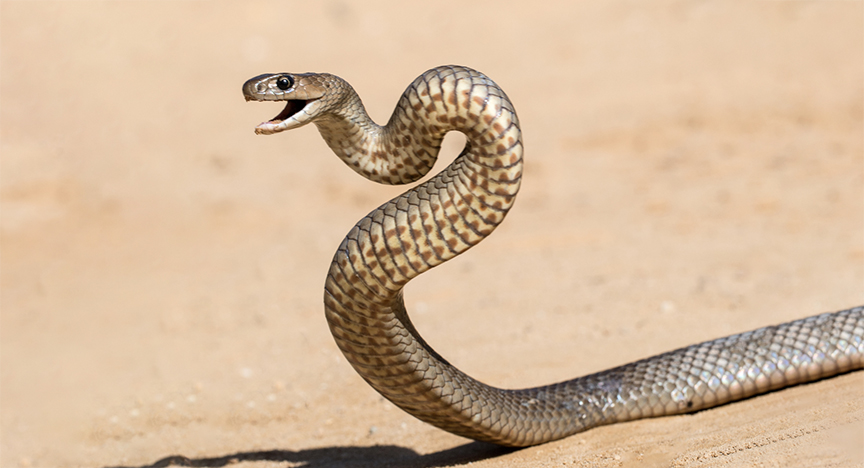
Infection dangers arising from snakebites, and an initiative to help older patients avoid visiting the Emergency Department are among several studies being presented at Cairns Hospital’s annual Research and Innovation Symposium last week.
Dozens of health professionals gathered at the hospital on Friday, 20 October, to celebrate research excellence in the tropics.
The annual symposium features more than 40 presentations from the Far North Queensland medical and allied health research community.
Dr Josh Hanson, an infectious disease specialist at Cairns Hospital, has investigated the likelihood of patients treated for snakebites being infected from bacteria carried in the snake’s mouth.
‘We know that wound infections are common after crocodile attacks from bacteria and other pathogens carried by the croc’s mouth,’ Dr Hanson said.
‘We have not really investigated whether this is also a risk from other reptiles, such as snakes.
‘Our Health Service treats hundreds of patients for snake bites each year, so we thought we would investigate whether infection was an issue with snakes.
‘Fortunately, we found that of the 732 patients hospitalised for snake bite at Cairns Hospital from December 2013 to October 2020, infection is a very uncommon complication of snakebite in tropical Australia.’
Madeleine Downey and Gillian Williams from the Older Persons Integrated Health Service implemented an Emergency Department avoidance initiative for older persons.
Ms Downey said the Cairns Rapid Response Service, which has been in operation at Cairns Hospital for 12 months, had been successful in keeping dozens of elderly and vulnerable patients out of hospital.
‘Health services are under increasing pressure to reduce preventable hospital demand,’ she said.
‘Older persons with complex needs have some of the highest rates of potentially avoidable hospital admissions in Cairns.
‘Once hospitalised, frail older persons may face long hospital stays and are at increased risk of hospital acquired complications such as delirium, falls, cognitive and functional decline.’
The new service involves a multidisciplinary team providing home visits to elderly and/or vulnerable people when they are about to be transported to hospital. Many issues can be managed without coming to hospital if their needs are identified and addressed in the right way.
‘The service has been a huge success,’ Ms Downey said.
‘In 12 months, most patients we have treated have not needed to attend the Emergency Department.
‘This has not only helped relieve pressure on Cairns Hospital, but also saved the Health Service an estimated nearly $458,508 in patient care.’
CHHHS Acting Director of Research, Dr Eddy Strivens, said the Health Service had been an active partner in research and clinical trials for 20 years.
‘Our health and medical research is a vital component of our Health Service, as it helps improve people’s health and wellbeing,’ he said.
‘We always look forward to seeing the latest and greatest research each year at our symposium, as everyone gathers with the intent purpose of improving our sector, to help us deliver world-class health care to locals and visitors to our region.’
A full program of the 2023 CHHHS Research & Innovation Symposium can be found at: https://cairns.health.qld.libguides.com/chhhs-researchsymposium/program